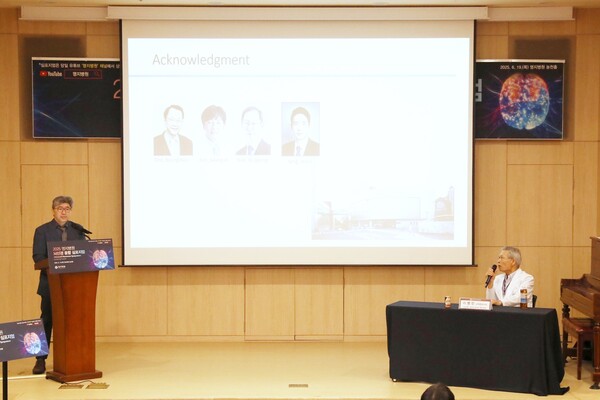Medical experts stressed the urgent need for a long-term national response to epilepsy, as it is more than just a neurological disease and can cause premature death and social stigmatization.
“Although epilepsy is a highly treatable disease, many patients suffer from stigma and social barriers, including unemployment, deprivation of education and marriage opportunities,” said Professor Lee Seo-young of the Department of Neurology at Myongji Hospital at the “2025 Myongji Hospital Brain and Nerve Fusion Symposium.”
The mortality rate is two to five times that of the general population, and it is an everyday disease that affects more than 190,000 people nationwide, so it is necessary to respond at the national level and establish a region-based management system, Professor Lee pointed out.
The symposium was chaired by Professor Lee Byung-in of the Department of Neurology at Myongji Hospital, who established the concept and treatment of epilepsy in Korea. Experts from home and abroad discussed various clinical issues in depth.

“Thirty percent of all patients with epilepsy have drug-resistant epilepsy that does not respond to existing drugs, and they need customized strategies, such as gene-based therapy, neuromodulation, and cell therapy,” said Professor Lee Ki-hyeong, a neurologist and epileptologist at AdventHealth in Orlando, Fla., specializing in pediatric neurology and epilepsy.
He explained the clinical achievements of NRTX-1001, a new cell therapy that controls seizures by directly injecting inhibitory cells into the brain, saying, “The treatment of epilepsy is now shifting to the era of precision medicine, which goes beyond mere survival to include quality of life and return to society.”
Professor Phi Ji-hoon of the Department of Pediatric Neurosurgery at Seoul National University Hospital said, “Tumors that cause early seizures may have a good prognosis with surgery, but pathological heterogeneity and ‘satellite lesions’ that are not identified by MRI make complete resection difficult, increasing the risk of long-term recurrence.”
Notably, DNET, a rare brain tumor, has a seizure-free rate of only 68 percent after 10 years, requiring continuous monitoring and a precision imaging-based surgical approach, Professor Phi added.
“This symposium, held on the third anniversary of the opening of our epilepsy center, is a meaningful opportunity for Korean and foreign experts to share the latest advances in epilepsy treatment and explore the role of medical care and social concern for patients with epilepsy,” Professor Lee Byung-in said. “We look forward to further strengthening our expertise in epilepsy treatment and expanding the horizons of medical care.”
Myongji Hospital Chairman Lee Wang-jun said, “‘The Lee Byungin Epilepsy Center,’ which opened with the name of an expert, a rare case in Korea, has grown into a treatment center for intractable patients across the country within three years of its opening. Based on our talented medical staff, including Professor Lee Seo-young, I hope that Myongji Hospital will continue to leap forward as a top-notch hospital in epilepsy through information exchange and communication with experts at home and abroad.”
Myongji Hospital has emerged as a base for epilepsy treatment since it opened the “Lee Byungin Epilepsy Center” in 2023, named after Professor Lee Byung-in, a world-renowned authority on epilepsy.
Related articles
- SK Life Science launches 1st US TV campaign to boost awareness of epilepsy drug cenobamate
- SK biopharmaceuticals' Q1 earnings solid on strong US cenobamate sales
- SK Life Science presents real-world data on epilepsy drug at US neurology meet
- Urgent need to address 'Korea passing' in new anti-seizure medications due to low public awareness
- Korea falling behind in introducing new epilepsy drugs, experts warn
- Identifying the genetic cause is key in pediatric epilepsy care

